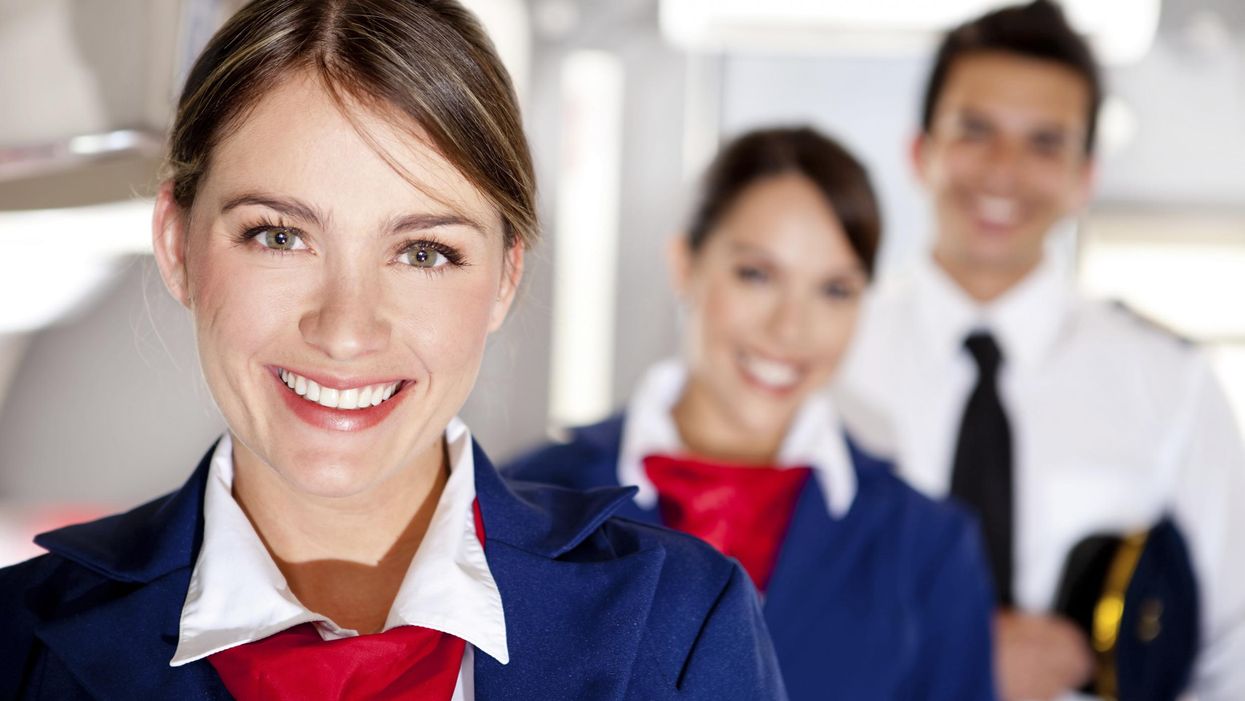Janice Bridger
Oct 07, 2016

Getty Images/iStockphoto
In response to the question "Where can I find all cabin crew knowledge?", Janice Bridger writes on Quora...
I’m not certain exactly what “knowledge” you’re looking for, but I can tell you that the vast majority of what we are taught as flight attendants involves safety and security on the airplane.
After all, the first and foremost reason of the flight attendant profession is to ensure a safe flight.
We are given extensive training in emergency procedures. And there are many different emergencies that can happen on an aeroplane. For example, there are the obvious flight emergencies such as crashes, evacuations, fires, decompression/hull breach, bombs, etc.
But there are emergencies that many people never consider.
There are on-board emergencies involving passengers, such as medical emergencies, fights between passengers, disorderly passengers and abusive passengers. (And yes, when you’re at 35,000 feet and can’t call 999 for help, those are considered emergencies.)
There are threat-emergencies, such as attempted hijackings, takeovers and physical threats (knives, guns or other weapons), as well as perceived threats when a passenger claims to have a bomb or indicates an imminent risk or danger. Likewise, any perceived threat of physical bodily harm is considered an immediate emergency.
Additional emergencies include known and unknown substances (if a passenger’s bag is leaking something, or we find evidence of a caustic liquid on the plane), abuse of substances (i.e. if we discover someone mixing toxic substances together to [possibly] create an explosion or other harmful effect), bio-hazardous material and a host of other situations that could constitute an emergency.
Cabin crew are thoroughly trained in not only recognising these circumstances and the potential for escalation, but we are trained in procedures for handling them in order to first prevent the situation if possible, and if not, then to eliminate or at least reduce the risk, defuse or mitigate the problem and restore the integrity and safety of the flight and the passengers on board.
Much of this knowledge is readily available outside of the industry. For example, self-defense classes can be found everywhere. Many companies teach conflict-resolution seminars, and there are certainly plenty of ways to learn about how one can respond to chemical spills, bio-hazardous material and such. Likewise, CPR, life-saving skills and basic medical skills such as first-aid, wound care and even how to use an defibrillator, can all be easily learned at most local community centres, fire stations, police stations, hospitals or medical centres. All one needs to do is ask! Local community colleges are excellent resources for much of this information.
However… Much of the procedures that flight attendants (and pilots) are taught is security sensitive, and not available to the public. Security procedures and information is constantly being updated, and part of our job is to keep ourselves updated through daily updates, briefings, and frequent training.
All of this training is reinforced annually when we are required to attend what is called “recurrent” training. We are “re-taught” every bit of it, and tested to a very high standard. (Parts of the training require a pass score of as high as 98 per cent, while the more critical parts require absolute 100 per cent proficiency in order to keep one’s job.) This annual training is required by the US Federal Aviation Administration (FAA) and is mandatory. Failure to pass this training results in being removed from active flying, and either subjected to further intense training until proficiency is achieved, or dismissal from the job all together.
Oh yes, and a part of our training involves how to properly serve wine, cook meals and smile pleasantly! OK, I jest. Yes, we have customer service training and training in on-board service procedures. Of course we’re taught how to provide excellence to our passengers (and each other) and how to best ensure return business. And those lessons also are added onto each year, built up layer upon layer in an effort to achieve high customer satisfaction ratings. But that training is always provided only after we have mastered and passed the Safety & Security training.
So to answer your question “Where I can find all cabin crew knowledge?” (sic)…
The short answer is, “You can’t!” You can find much of it in the public domain, but much of it you can’t. You must be vetted, and become a flight attendant or a pilot to learn it all!
Top 100
The Conversation (0)













